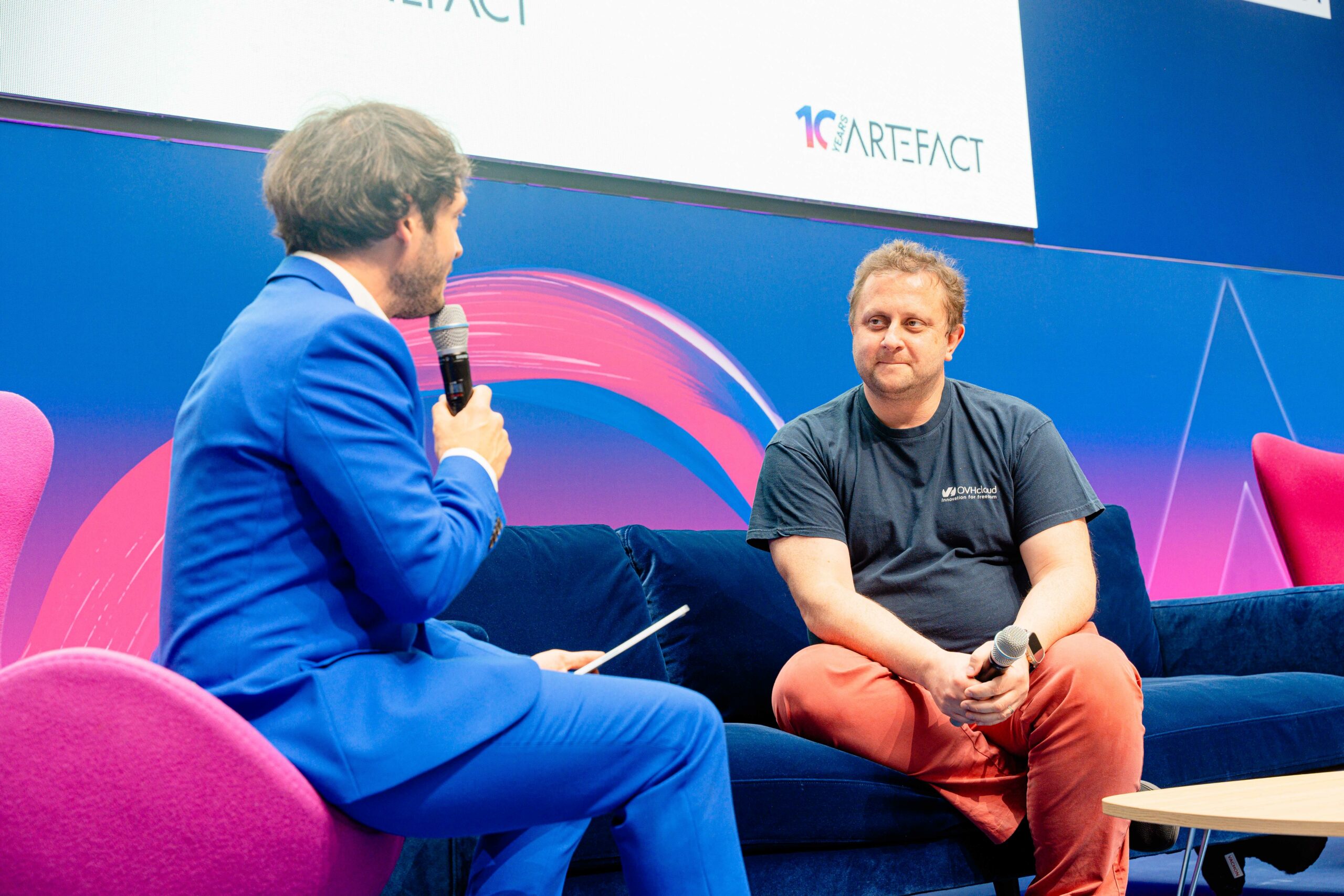Key learnings from the discussion with Octave Klaba, Founder and President of OVHcloud, at the Adopt AI Summit by Artefact - June 5, 2024
About Octave Klaba: Octave Klaba is the founder and chairman of OVHcloud, a leading global cloud infrastructure provider offering web hosting, dedicated servers, and cloud solutions. He studied at ICAM (Institut Catholique d’Arts et Métiers) in Lille, where he developed his engineering expertise. In 1999 he founded OVH, which has grown to become one of Europe’s largest cloud computing companies with numerous data centers worldwide. Octave Klaba is a strong advocate for European tech sovereignty, emphasizing the importance of independence from non-European cloud giants.
AI evolution and infrastructure needs
AI is juste the next generation of what can be done with computers and data. Today, four things are needed to run the AI the OVHcloud. The hardware (GPUs), people that are qualified which will make the algorithms work – that is the third element- and finally you need data. And those four things need to be connected together in order to make sense. In addition to that, the current AI landscape benefits from streamlined APIs, which simplify usage for end users and businesses: the readiness of technologies is better for customers.
Challenges that AI adoption is creating in cloud industry
The cloud industry faces significant challenges. The first one is related to data storage and precisely how to physically crunch the data. This issue in particular needs to be solved before starting the next level of the training. This led to another challenge: the ecological one. Regarding the number of data centres you need to store the data, it will have an impact on the consumption of energy. Then, another challenge is more related to the data usage rights: where the data is coming from ? Do you have the right to use it ? These new challenges must be faced and resolved to support AI advancements effectively.
Impact on business models
Cloud providers face challenges due to the rapid obsolescence of hardware and the need for continuous innovation. So, you need to have a vision for 3 to 4 years ahead, considering when the hardware you invested in will become obsolete and the investments that this will entail. But the most important part is about the customers. One must ask why a consumer uses AI. The answer is often to reduce costs. As cloud providers, it is therefore important to implement meaningful projects, improve others, and ensure that AI makes companies and people more efficient.
Opportunities for Europe in AI
Europe, particularly France, has the potential to excel in developing AI models and technologies. Klaba suggested leveraging Europe’s engineering talent to create innovative, customer-centric AI solutions, possibly through open-source models.
Future prospects and announcements
OVHcloud is working on reducing AI inference costs and developing new AI products. He stressed the importance of aligning technological advancements with customer needs and business profitability to ensure long-term success.
“AI is fundamentally changing how we interact with technology. It’s about making AI accessible and practical for businesses and individuals alike, driving innovation and efficiency across all sectors.”Octave Klaba, Founder and President of OVHcloud
How can companies adopt AI
One of the key points is to make AI accessible and easy to use, like on a smartphone that helps people adopt it quickly. This simplicity proves that AI can be accessible to everyone, which is why there’s so much excitement and hype around it today. As people find AI easy to use in their personal lives, big companies will also start using it for their businesses.
Visit adoptai.artefact.com

 BLOG
BLOG






